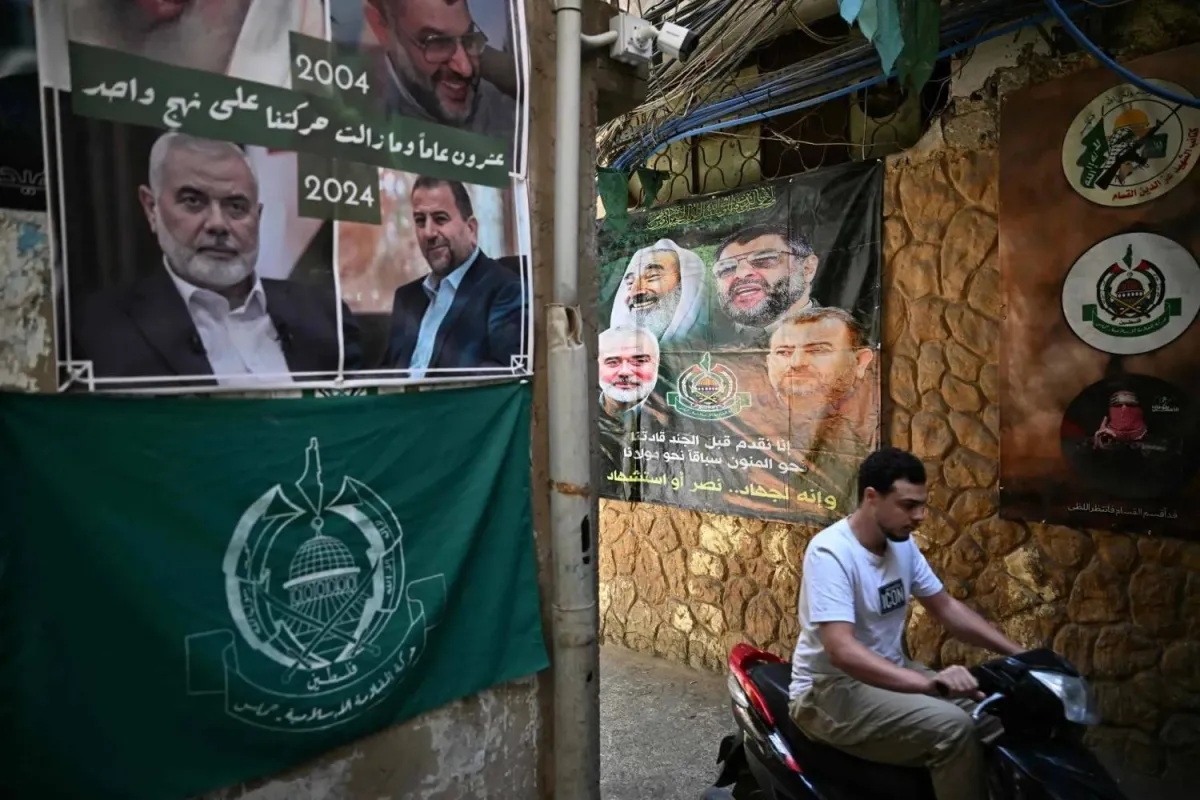Hamas Seeks Faction Talks Before Palestinian Disarmament in Lebanon

A Lebanese-Palestinian agreement announced Wednesday following talks in Beirut between Lebanese President Joseph Aoun and Palestinian President Mahmoud Abbas has reignited debate over the future of Hamas' weapons in Lebanon and the status of other Islamist factions in refugee camps.
The agreement, which reaffirms that only the Lebanese state may possess weapons, comes at a time of shifting regional alliances and a diminishing role for Iran’s axis, including Hezbollah, long seen as a main backer of armed Palestinian groups in Lebanon.
Hamas: Decision Linked to Dialogue
Hamas sources told Asharq Al-Awsat the group is open to steps that promote Lebanon’s stability but emphasized that Abbas represents the Palestinian Authority in Ramallah and any decisions regarding Hamas' arms or those of other factions must follow consultation and dialogue.
“Security and stability in Lebanon have always been among our priorities,” the sources said.
“But it is important to stress that Hamas weapons have not been used inside or outside the camps—except during coordination with Hezbollah in support of the resistance against Israel. As for rocket fire from the south, that was the work of undisciplined individuals, and we handed them over to the Lebanese authorities.”
They also pointed to the Palestinian-Lebanese Dialogue Committee as a key forum for any future discussions over disarmament.
Ali Barakeh, head of Hamas’ National Relations Office in Lebanon, told Agence France-Presse prior to Abbas’ visit, that the group urges the Lebanese government and Palestinian president to adopt a comprehensive approach—not just focused on weapons or security—but also on the civil and human rights of Palestinians in Lebanon.
No Option but Compliance, Former MP Says
With regional dynamics shifting and Lebanese authorities increasingly taking firm positions on non-state arms—starting with Hezbollah and now extending to Hamas and other Islamist factions—retired brigadier general and former Lebanese MP Wehbe Qatisha said Hamas is running out of options.
“Hamas has lost all leverage,” he told Asharq Al-Awsat. “After Hezbollah's setbacks, the group no longer has the ability to operate on Lebanese soil. Hezbollah tried to use Hamas to escalate after the ceasefire with Israel, but that move was flatly rejected, and the party can no longer offer Hamas any real cover.”
Qatisha said the only viable path forward for Hamas is cooperation. He dismissed Hamas' call for conditions or guarantees on Palestinian rights, saying, “The Palestinian Authority is the legitimate representative of the Palestinian people. As for the camps, they fall under the jurisdiction of the Lebanese state, which must coordinate with the PA to implement a disarmament plan.”
Could Disarmament Spark Conflict?
However, political analyst Qassem Qassir warned that efforts to strip Palestinian factions of their arms could backfire, recalling how the issue of Palestinian weapons once triggered civil war in Lebanon.
“This is a very difficult step to enforce, especially under current regional tensions,” he said. “At best, the focus should be on controlling the weapons inside the camps.”
Qassir stressed the need for a patient and inclusive approach: “This issue will only be resolved through dialogue and perseverance—values often emphasized by Parliament Speaker Nabih Berri and President Joseph Aoun. The region is volatile, and the future is uncertain.”
aawsat.com